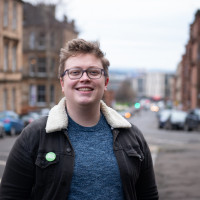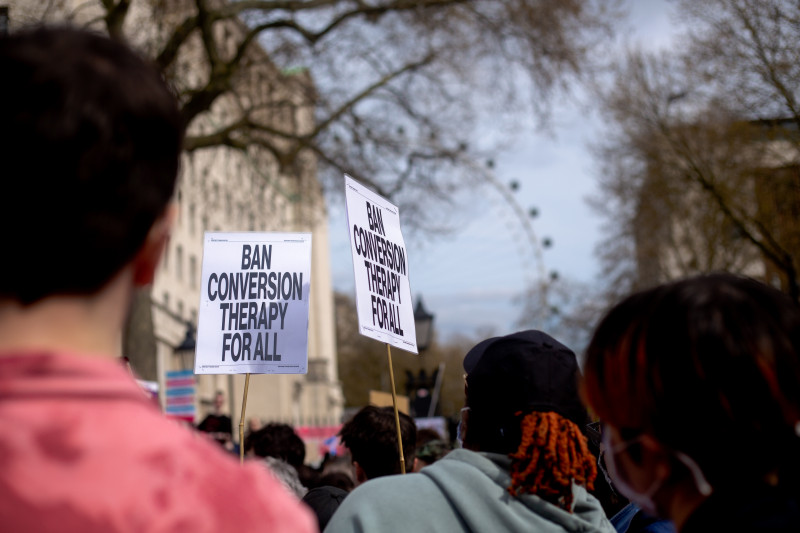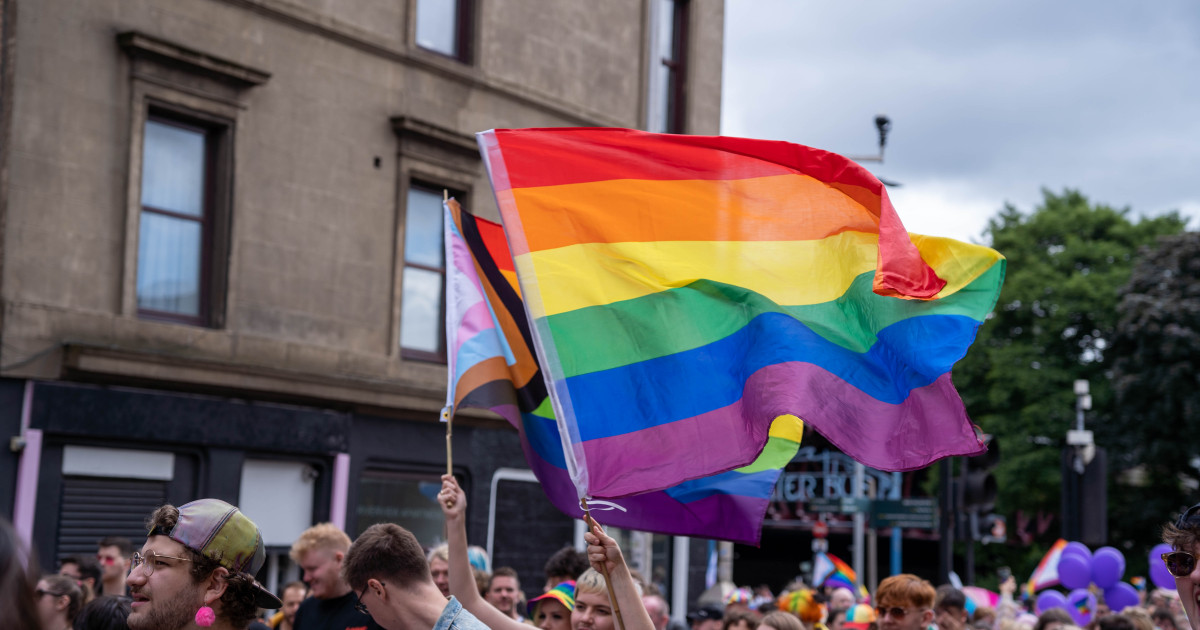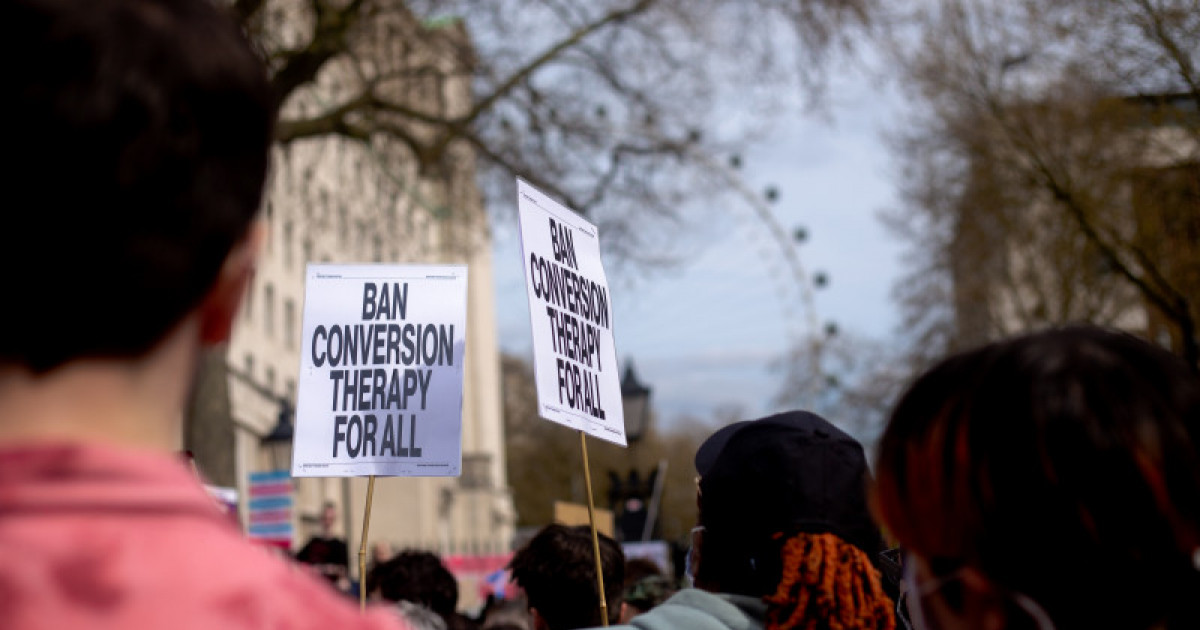At a glance: Why we need to ban conversion therapy
The Scottish Government is consulting on banning so-called conversion therapy after years of campaigning by survivors, activists and the LGBT+ community. This guide looks at why a ban is so badly needed, and the importance of as many people as possible taking part. Trigger warning: Contains descriptions of conversion practice.
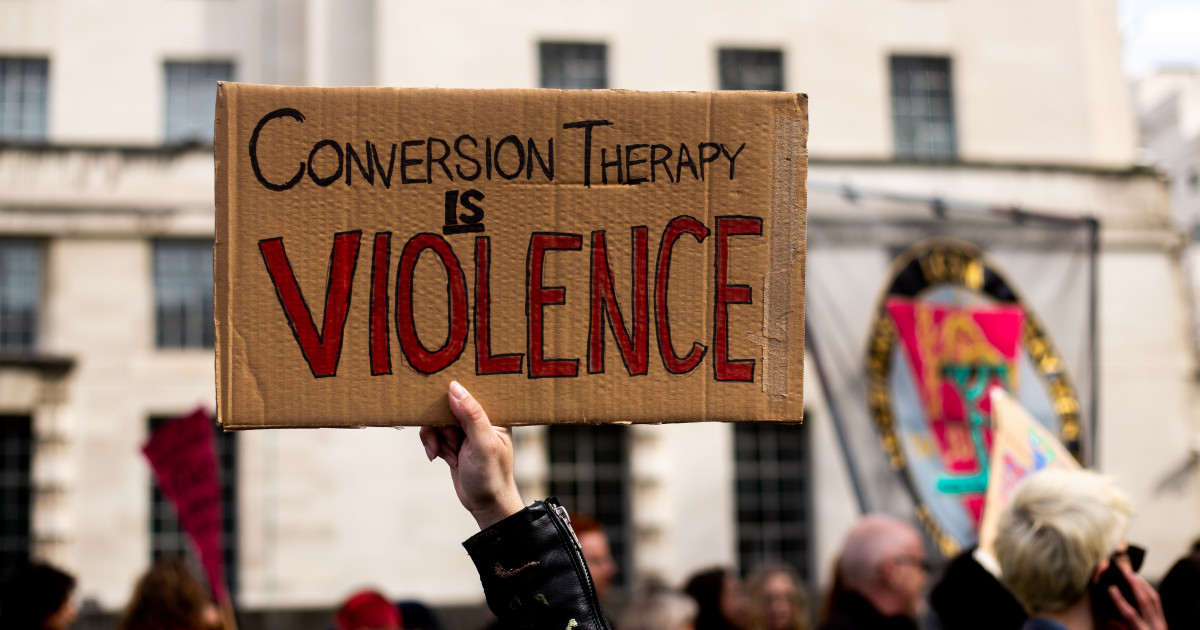
What is conversion therapy?
So called conversion therapy, or conversion practice, is an act which intends to change or suppress someone’s sexual orientation or gender identity.
It can take lots of different forms but all share an intention to stop people from being LGBTQ+ and stem from a belief that LGBTQ+ people need to change or suppress who they are.
Different terms have been used to apply to such activities in the past, including ex-gay therapy, gay cure therapy and ‘reparative therapy’.
Conversion therapy is not actually a legitimate form of therapy or treatment, however it is the term most commonly used to describe the practice. It is a form of pseudoscience, and it has been shown to be harmful to LGBTQ+ people’s health and wellbeing.
LGBTQ+ people are not sick, broken, or in need of being changed or converted because of their sexual orientation or gender identity. It is a harmful and discriminatory practice based on prejudice; a ban will protect LGBTQ+ people from this harm and will send a clear message that LGBTQ+ people are welcome, respected and free to be who they are in Scotland.
What does conversion practice look like?
It can take many different forms and cases of conversion practice may look very different from one another. All are harmful and none of them work.
Types of conversion practice can range from electric shock treatment and chemical castration to conversion ministry or ‘corrective’ rape. Other forms of abuse - such as physical abuse or emotional abuse - can be used as a way of carrying out so-called conversion therapy.
A proposed Scottish Government ban does not specify forms of conversion practice which would be banned. Under these proposals, any conduct which is done with the intention of changing or suppressing someone’s sexual orientation or gender identity would be banned.
Does conversion practice work?
No. There is no credible evidence that it works. The scientific consensus is that it is not possible to change your sexual orientation or gender identity, as these are fundamental and innate aspects of the self.
People’s understanding and expression of their own sexual orientation or gender identity may change over time. People’s sexual orientation or gender identity can be suppressed, either by themself or because of the actions of others; this means that they do not act upon or express their sexual orientation or gender identity.
This ban only seeks to stop someone from trying to change or suppress another person’s sexual orientation or gender identity.
What’s the problem with conversion practice?
Conversion practice is based on the belief that LGBTQ+ people need to change who they are. It is normal, healthy and natural for people to be LGBTQ+; they do not need to be changed, healed or converted. LGBTQ+ people are worthy of safety, love and respect.
Not only does conversion practice not work, it is also very harmful. For many people who undergo conversion practice, they experience long-term psychological damage. Survivors have higher rates of mental ill-health and substance abuse issues. Those who have undergone such experiences are nearly twice as likely to attempt suicide compared to those who have not.
It doesn’t actually happen any more, does it?
Conversion practices happen in Scotland to this day. It can be difficult to determine exact numbers, however the UK Government’s most recent National LGBT Survey found that 5% of respondents had been offered so called conversion therapy and a further 2% had undergone it.
It can happen in many settings, and is usually carried out by someone in a position of authority. A lot of it is done by faith leaders or faith organisations. It can also take place at the hands of medical professionals, family members and other community leaders.
One of the most famous victims of conversion therapy was the WWII code-breaker Alan Turing whose work on the Enigma machine helped ensure an Allied victory against the Nazis.
After being convicted for his homosexuality, Turing was forced to undergo chemical castration in order to change his sex drive. Turing took his own life soon after. This form of state-sanctioned 'therapy' no longer takes place in the UK today, but conversion practices and attempts to change people’s sexual orientation or gender identity do still take place.
Why do we need a ban? Isn’t most of this stuff already illegal?
Some forms of conversion practices are illegal, but not all of them are. There are many survivors of who do not have any legal protections and that needs to change.
A ban will also send an important signal to LGBTQ+ people in Scotland and to those who practice so called conversion therapy: Scotland believes that LGBTQ+ people are worthy of safety, love and respect, just as they are.
What do I do if I am currently going through conversion therapy?
Help is available at this link to lgbthealth.org.uk
